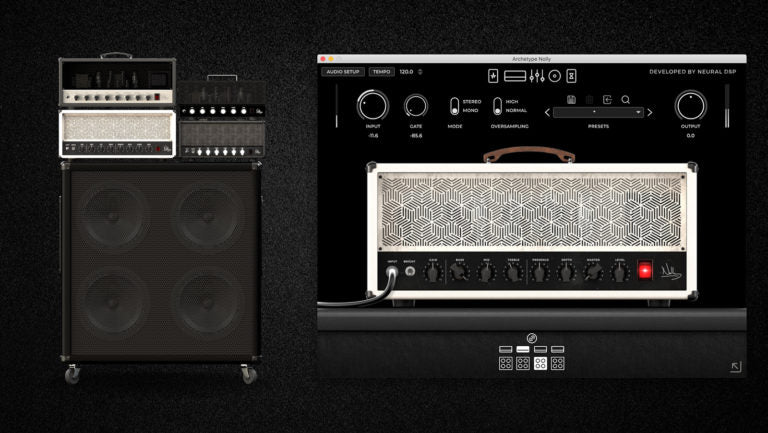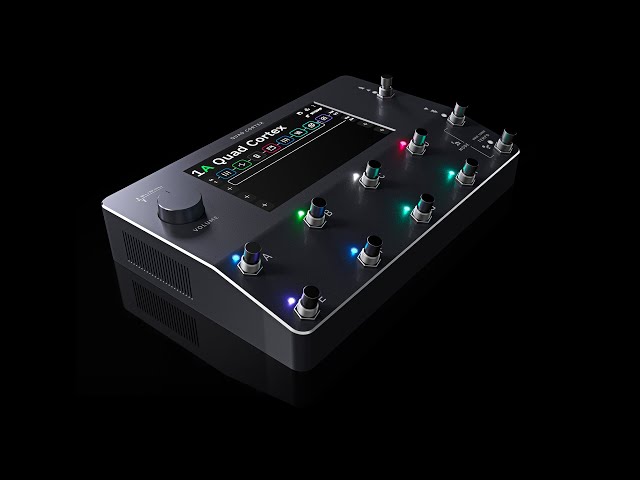And a quad-core processor that's far and above anything available in current modelers from what I gather.
I agree that tone and feel are "debatable", but the Andertons guys have demo'd just about everything and even they claim this is next level in terms of sound and feel, so that's intriguing at least.
Just to be clear, I'm not arguing. But if Neural can "build a better car", so to speak, I'm all for it.
The whole game is about marketing and excitement, imo. You've got products like Helix which to my ears has inferior modeling, but somehow has a large market share. Go figure. My impressions of what is available:
The Helix has a large presence on the forums, they spend a ton on advertizing and yet I personally think it sounds like last generation modeling. I did not like the Native demo, and I did a deep dive in the features. But some people love it, I suspect they love the interface and their ears are different than mine. I liked alot of the demo videos until I actually played with it.
The Fractal stuff... has the exclusivity of a custom shop.. yet in A/B demos I don't hear it being any better than the other ones. Yet there are people that will tell you its the best. Even though the FM3 is still plagued by hardware and software issues. (Does it yet function as a usb interface?) They have some highly skilled demo artists creating daily content for it. I enjoy these videos and think it sounds great.
Kemper. If you go to TGP you will read there are people who have bought and sold the Kemper multiple times. Like they can't make up their minds. It sounds great, but it involves countless hours hunting profiles. When you change the gain and eq its no longer like the real amp it profiled. I think there is some evidence that the whole profiling paradigm has some issues of accessibility for typical users who want their processor to work like a virtual collection of amps and pedals.
GT1000- Boss is like the Toyota Camry of the modeling world. Its not exciting, but when you look close it has a ton of really smart features. In AB testing it can be made to sound the same as the other ones. Some people will tell you its junk, not at the same level. Others tell you it feels better than the rest. I have many years with boss digital processors, I understand their paradigm and I know they can be made to sound good. Roland makes their own dsp so no one knows how it compares to ots sharc processors.
Headrush- Has solid modeling, Imo as good as it gets, but the interface is "form over function". Its pretty and easy to use, but the box is missing core features like amp switching. Its really huge, too big to travel with or take to work. The Gigboard is intriguing because its smaller, but features still kinda thin.
Zoom- The new box is brutalized for looking ugly (I dont agree), although its a modern incarnation of the much loved ME-80, in digital form. I think its a great idea, but I haven't heard any serious demos. I dont know how it sounds and for 800 clams, it should have amp switching. Id rather have amp switching than a color touch screen. I bet if I owned this I'd enjoy it.
The Quad Cortex is in the honeymoon marketing phase. Obviously there are tons of house-bound musicians who need something new to pass the time, so excitement is naturally high. They are one upping Fractal in the "most powerful processor" game. But that doesn't mean the algorithms are better. If they can pull off instant patch switching with spillover , like Boss, that will put them in a unique category. The thing about their website that concerns me, is the claims of "Artificial Intelligence". Their website and some of their claims seem a bit hyperbolic. There is too little known about it for me to get excited in any way. I expect the feature list to be thin like the other newcomers. The interface looks like the helix. Instead of using touch capacitance like Helix to select effect blocks, they are using rotary stomp switches. That seems too smart for its own good. Should people be stepping on the encoders? Potential for high failure rate. Do you really want to be touching things with your hands that you have also stepped on?
Anyway, like I said, I'm not excited about the QC because it strong suit is profiling, which is a paradigm Kemper has already explored. And there are too many other unknowns. I think a year after release I will have a better picture of whether it is worth $1600.






